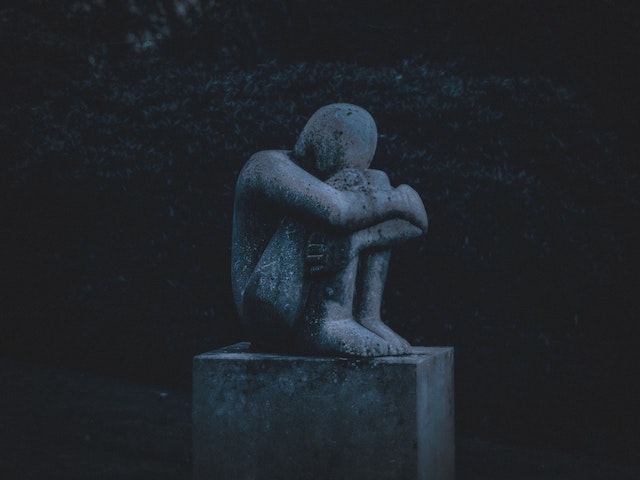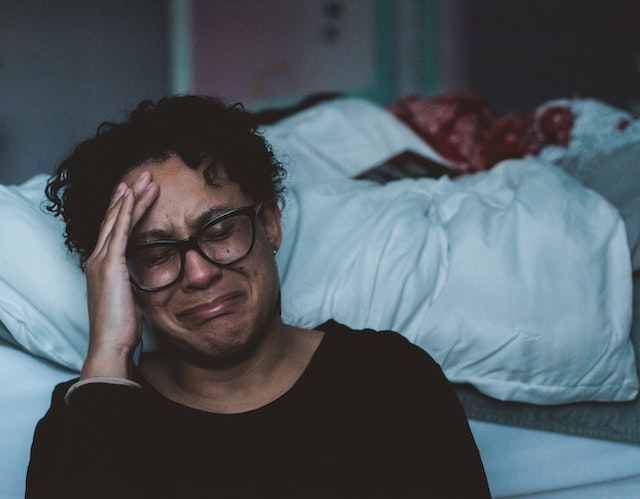Let the journey of self-discovery enrich your life...
According to the American Psychiatric Association, one in six people will experience depression over the course of their lifetime. Still, depression remains hard to talk about for many, and in some circles is minimized or seen as a weakness of will. It’s no wonder so many people choose not to discuss their depression with others. Depression drains your resources—the last thing you need is to push against a harmful stigma.
Signs of depression: Am I really depressed?
The most common question I get when people come to see me with depressed mood is: how do I know it’s really depression?
You may think the distinction between sadness and depression isn’t an important one. After all, isn’t the point to feel better? What does it matter whether you’re experiencing sadness or depression? Isn’t the end result the only thing you need to think about?
Understanding the difference between depression and sadness can be quite important when it comes to treatment.
Although what depression looks like will vary from one individual to the next, here are some of the most common symptoms of depression:
- Feeling pervasive sadness or emotional numbness;
- Persistent fatigue or noticeable reduction in energy levels;
- Lack of interest in pursuits that previously brought you pleasure;
- Changes in sleeping patterns (insomnia or sleeping too much);
- Loss of appetite or increase in stress-eating;
- Disruption in mental focus and concentration;
- Recurrent thoughts of unworthiness or putting oneself down.
Further, for the mood disturbance to be considered depression, the symptoms would linger for a minimum of two weeks. Suicidal thoughts can accompany depression, but not every person who experiences depression will have thoughts about their own death or feel suicidal. (If you experience suicidal thoughts, call the National Suicide Prevention Lifeline at 1-800-273-8255. Someone is there to answer your call 24/7.)
If I’m not depressed, what’s going on?
You may have had the experience of asking a friend how they are today and hearing in response: “Oh, I got in a big fight with my boyfriend and now I’m so depressed.”
It’s a noteworthy fact of modern life that on the one hand true mental illness is often stigmatized, which unfortunately serves to interfere with all people getting the help they need, but on the other hand, clinical language is often used to describe ordinary fleeting emotional states.
This is not said to make anyone feel badly for using serious terms in a casual way. Instead, it’s meant to bring an awareness to the value of precise language when we’re trying to get at the root of what we’re feeling. And in the example above, the speaker is not describing true depression, but rather, is reacting to a stressful event that understandably lowered their mood, rather than a chronic state that existed prior to the event.
Sadness is one of the symptoms of depression, and sadness outside of depression typically has an endpoint, whereas depression includes symptoms in addition to sadness that combined, can be debilitating and prevent you from functioning in the major areas of your life.
Additionally, sadness does not typically include the crushing feelings of unworthiness often experienced in depression. When you’re mourning the loss of a loved one, for instance, you might be reeling from punishing thoughts such as wishing you’d spent more time with the deceased when there still was time. For some people, those thoughts can take on a particularly ruthless tone. Still, even in those cases, the thoughts spring from grief, not from inherent feelings of worthlessness.
Further, feelings of intense sadness and grief usually come in waves rather than existing at the same intensity all the time. You may have heard that grief is a spiral, not a line. Even those suffering intense sadness and grief typically feel moments of relief (albeit extremely fleeting when the pain is at its worst). On the other hand, individuals suffering from depression may not get that kind of intermittent relief.
The famous William Wordsworth poem “Surprised By Joy” illustrates this: at the year marker of his daughter’s death, the poet sees a beautiful flower and momentarily forgets his grief.
Why traumatic events trigger sadness in some and depression in others
Grief and sadness are inevitable after a loss or traumatic event. But for some people, certain situations will result in depression that extends beyond sadness.
When an event or loss taps into our core wounds and vulnerabilities, major depression can be triggered by an external event.
For example, if you lost a parent in childhood, a painful breakup as an adult could reignite the loss you felt as a child, the deep-seated (perhaps unconscious) belief that the people you love will ultimately leave you. So in this case, what would have been situational sadness and grief (albeit extremely painful) morphs into major depression. Believing that you’re unworthy of love, you may start to drown in emotional pain and lose sight of the fact that everyone experiences a breakup at one point or another, and that event does not mean you’re unworthy of love. . . it only means you’re human.
Making the distinction between depression and sadness/grief does not imply that grief and sadness don’t warrant the help of others, and even sometimes professional help. We all will, at some point in our lives, struggle with emotional pain so great that we need a trusted other to help us get through the worst of it.
An empowering first step in healing is understanding what you’re dealing with, which is why it’s helpful to accurately identify whether you’re grappling with depression or sadness/grief. But at the moment when you’re moved to seek help, that motivation is all that matters.
What to do if you think you’re struggling with depression
Getting the help of a mental health practitioner is key for many people, a professional trained to understand and treat depression.
A good therapist will help you assess whether what you’re feeling has been a lifelong pattern for you, and whether the depression has been resistant to positive events in your life. In that case, ongoing therapy and/or medication may be warranted.
Depression can have a chemical component to it, which is why some sufferers find relief through medication. However, it can be a chore to find an antidepressant that works and that doesn’t have deal-breaker side-effects. It’s often several weeks before a patient can know whether a particular drug will work.
Psychotherapy is commonly prescribed in conjunction with medication and has been shown to be effective without medication as well.
A bevy of recent studies tout the benefits of physical exercise for those suffering from depression. The catch-22 here is that when you’re depressed, lacing up your sneakers and going for a walk can feel like an insurmountable task. You may feel like you’re pushing through wet cement every waking hour. But when possible, moderate physical exertion on a regular basis is highly recommended.
And one of the most important things to remember if you’re suffering from depression is that there is every reason to take hope. Depression is one of the most treatable of all mental illnesses. From the American Psychiatric Association’s website: “With proper diagnosis and treatment, the vast majority of people with depression will overcome it.”
(If you’re experiencing suicidal thoughts, call the National Suicide Prevention Lifeline 1-800-273-8255. Someone is there to answer your call 24/7.)
Rich Nicastro, PhD is an Austin, TX based psychologist with twenty-five years experience working with individuals and couples. Dr. Nicastro offers online therapy (teletherapy) for Texas residents.
**In addition to Texas, Dr. Nicastro is now offering teletherapy to people residing in Alabama, Arizona, Colorado, Delaware, Georgia, Illinois, Maryland, Missouri, Nebraska, Nevada, New Hampshire, North Carolina, Oklahoma, Pennsylvania, Tennessee, Texas, Utah, Virginia Washington, Washington DC, West Virginia and Wisconsin.**









